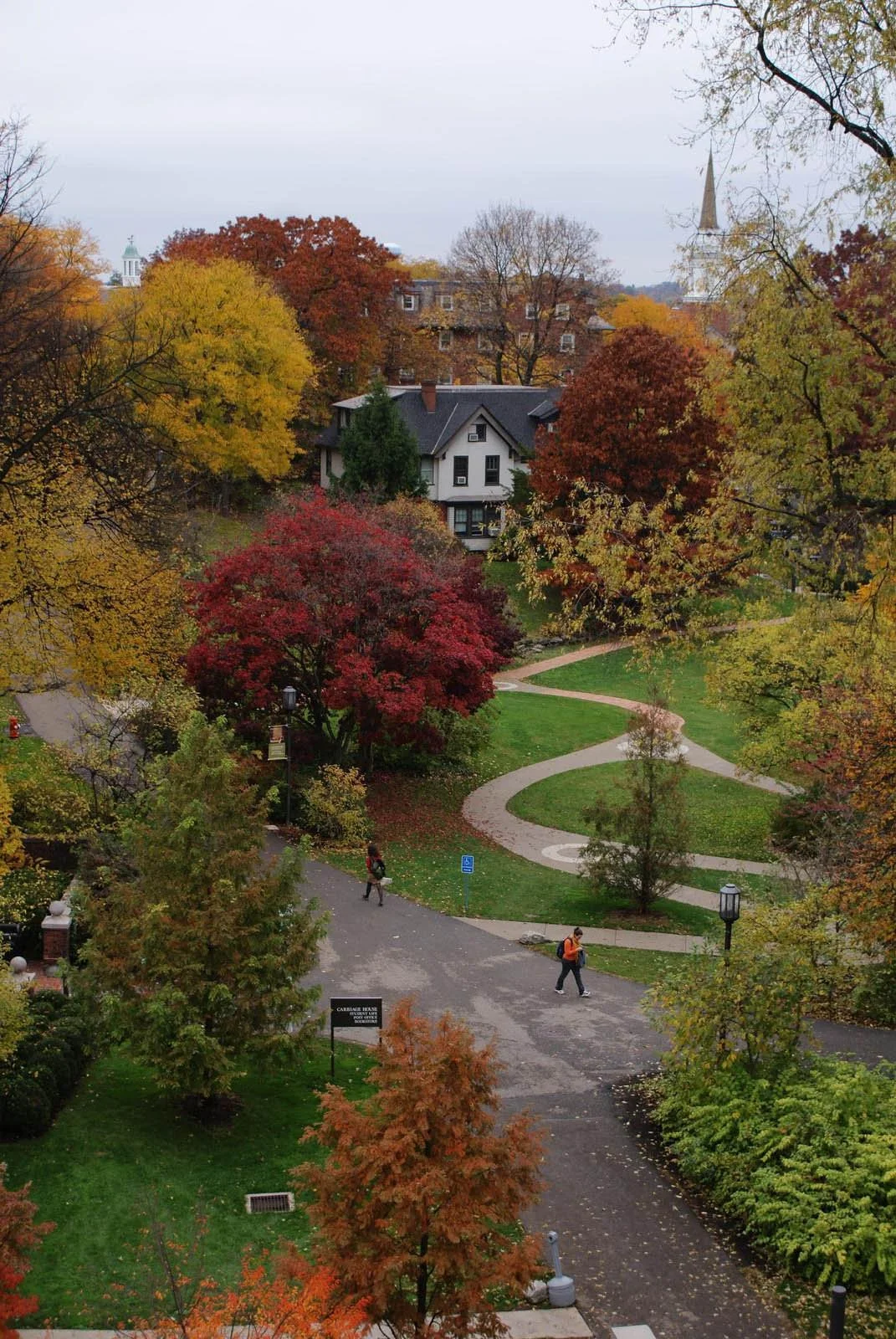
About
Eden Hall Campus
Inspired by the work of alumna Rachel Carson, Eden Hall is the world’s first campus built from the ground-up to model sustainable practices.
Opened in 2014, the campus manages storm- and wastewater on site; harnesses energy from the sun and manages heating needs with the help of the earth; boasts a fully certified organic farm and four Platinum LEED certified buildings; and strives for zero carbon emissions.
Amidst this living-learning laboratory, faculty, students, and the public engage in a collaborative, hands-on approach to learning while conducting research and connecting with partners advancing similar work.
Just 40 minutes outside of Pittsburgh, the campus also is an oasis for gathering and building community.
Falk School of Sustainability & Environment
One of the earliest schools of its kind in the country, the Falk School is a place where:
scholars and practitioners engage with complex ecological and social problems facing our world,
the land and campus at Eden Hall serve as both teachers and opportunities for stewardship,
students learn by experimenting with real-world challenges, and by serving our community.
Hosting undergraduate programs in sustainability, food studies, and environmental science as well as graduate programs in food studies and sustainability, faculty and students work closely together on research and collaborations within the surrounding Pittsburgh region.
Chatham University
Centrally located in Pittsburgh, Chatham University was founded in 1869 as an all-women’s college to empower women and create a more just society.
Continuing the work of providing equitable and progressive education, Chatham has become a leader in teaching and practicing sustainability, recognized locally, nationally, and internationally.
Chatham is consistently ranked one of the top schools for sustainability by the Sustainability, Tracking, Assessment and Rating System (STARS), selected by the Princeton Review as the #4 Green College in the United States in 2021, and mentioned as one of the most sustainable universities in the world by USA Today, Forbes, and other national media.
Pittsburgh
An early symbol of American industrial progress —and pollution—Pittsburgh is now using its industrial roots to move toward a more sustainable future.
Through world-class innovation and research, hard-won insights on trade-offs between industry and community, and a history of cross-sector collaboration, Pittsburgh has become a city at the center of a global conversation on sustainable development.
In 2020, Pittsburgh’s business, government and community leaders established a blueprint for the coming decade, built upon achieving the goals of the Paris Climate Change Agreement and the UN Sustainability Development goals.
Pittsburgh’s “2030 District” – part of a global network of cities focused on green buildings – is constructing or renovating buildings to produce 50% reductions in energy use, water consumption, and transportation emissions by 2030.
Home to a vibrant farming and food culture, Pittsburgh and the surrounding region is advancing innovative practices around culinary tourism, small producer networks, and local community development.
As Pittsburgh moves forward from its past, it offers a space where leaders in the fields of environmental justice, natural resources restoration, sustainability, food access, and more are beginning to transform the industrial legacy of the Western Pennsylvanian region toward a future where economic prosperity, social justice, and ecological health come together for the benefit of all.




